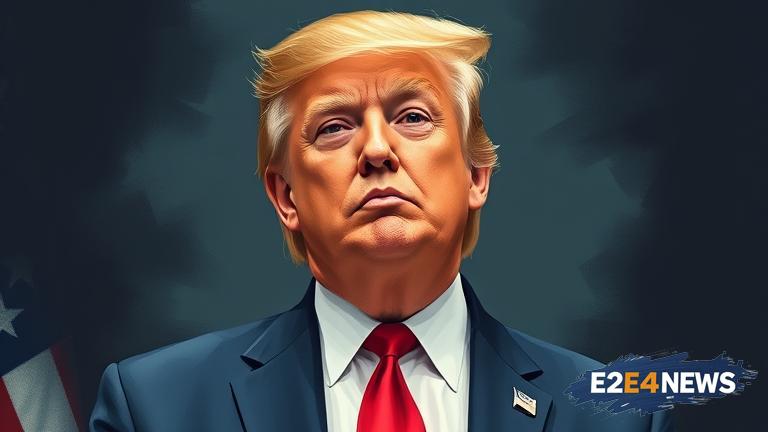The recent deal between the US government and Intel has sparked a heated debate about the country’s economic system, with some experts warning that it marks a significant shift towards state-run capitalism. The deal, which involves the US government providing significant funding to Intel to build a new chip factory, has been hailed as a major victory for the Trump administration’s efforts to boost the US tech industry. However, critics argue that the deal sets a dangerous precedent, with the government essentially picking winners and losers in the market. This, they warn, could lead to a lack of competition and innovation, as well as potential risks to national security. The deal has also raised concerns about the role of the government in the economy, with some arguing that it is overstepping its bounds. The US has traditionally been a champion of free market capitalism, but the deal with Intel suggests that the country may be moving towards a more state-led approach. This could have significant implications for the US economy, as well as for the global economy as a whole. The deal has also sparked concerns about the potential for corruption and cronyism, with some arguing that the government is favoring certain companies over others. The US government has defended the deal, arguing that it is necessary to boost the US tech industry and to counter the growing threat from China. However, critics argue that the deal is not the right solution, and that the government should instead focus on creating a favorable business environment that allows companies to compete and innovate. The deal has also raised concerns about the potential impact on the US workforce, with some arguing that it could lead to job losses and decreased wages. The US government has promised that the deal will create thousands of new jobs, but critics argue that these jobs may not be sustainable in the long term. The deal has also sparked concerns about the potential impact on the environment, with some arguing that the new chip factory could lead to increased pollution and waste. The US government has promised to ensure that the factory is environmentally friendly, but critics argue that more needs to be done to address the potential risks. The deal has also raised concerns about the potential impact on the US tax system, with some arguing that it could lead to a decrease in tax revenue. The US government has promised that the deal will generate significant tax revenue, but critics argue that this may not be the case. The deal has also sparked concerns about the potential impact on the US trade relationships, with some arguing that it could lead to increased tensions with other countries. The US government has promised that the deal will help to boost US exports, but critics argue that this may not be the case. The deal has also raised concerns about the potential impact on the US national security, with some arguing that it could lead to increased risks of cyber attacks and data breaches. The US government has promised that the deal will help to boost US national security, but critics argue that more needs to be done to address the potential risks. The deal has also sparked concerns about the potential impact on the US economy as a whole, with some arguing that it could lead to increased inflation and decreased economic growth. The US government has promised that the deal will help to boost US economic growth, but critics argue that this may not be the case. The deal has also raised concerns about the potential impact on the US financial system, with some arguing that it could lead to increased risks of financial instability. The US government has promised that the deal will help to boost US financial stability, but critics argue that more needs to be done to address the potential risks. The deal has also sparked concerns about the potential impact on the US political system, with some arguing that it could lead to increased corruption and cronyism. The US government has promised that the deal will help to boost US political stability, but critics argue that more needs to be done to address the potential risks. The deal has also raised concerns about the potential impact on the US social system, with some arguing that it could lead to increased inequality and decreased social mobility. The US government has promised that the deal will help to boost US social mobility, but critics argue that more needs to be done to address the potential risks. The deal has also sparked concerns about the potential impact on the US education system, with some arguing that it could lead to increased costs and decreased access to education. The US government has promised that the deal will help to boost US education, but critics argue that more needs to be done to address the potential risks. The deal has also raised concerns about the potential impact on the US healthcare system, with some arguing that it could lead to increased costs and decreased access to healthcare. The US government has promised that the deal will help to boost US healthcare, but critics argue that more needs to be done to address the potential risks.
